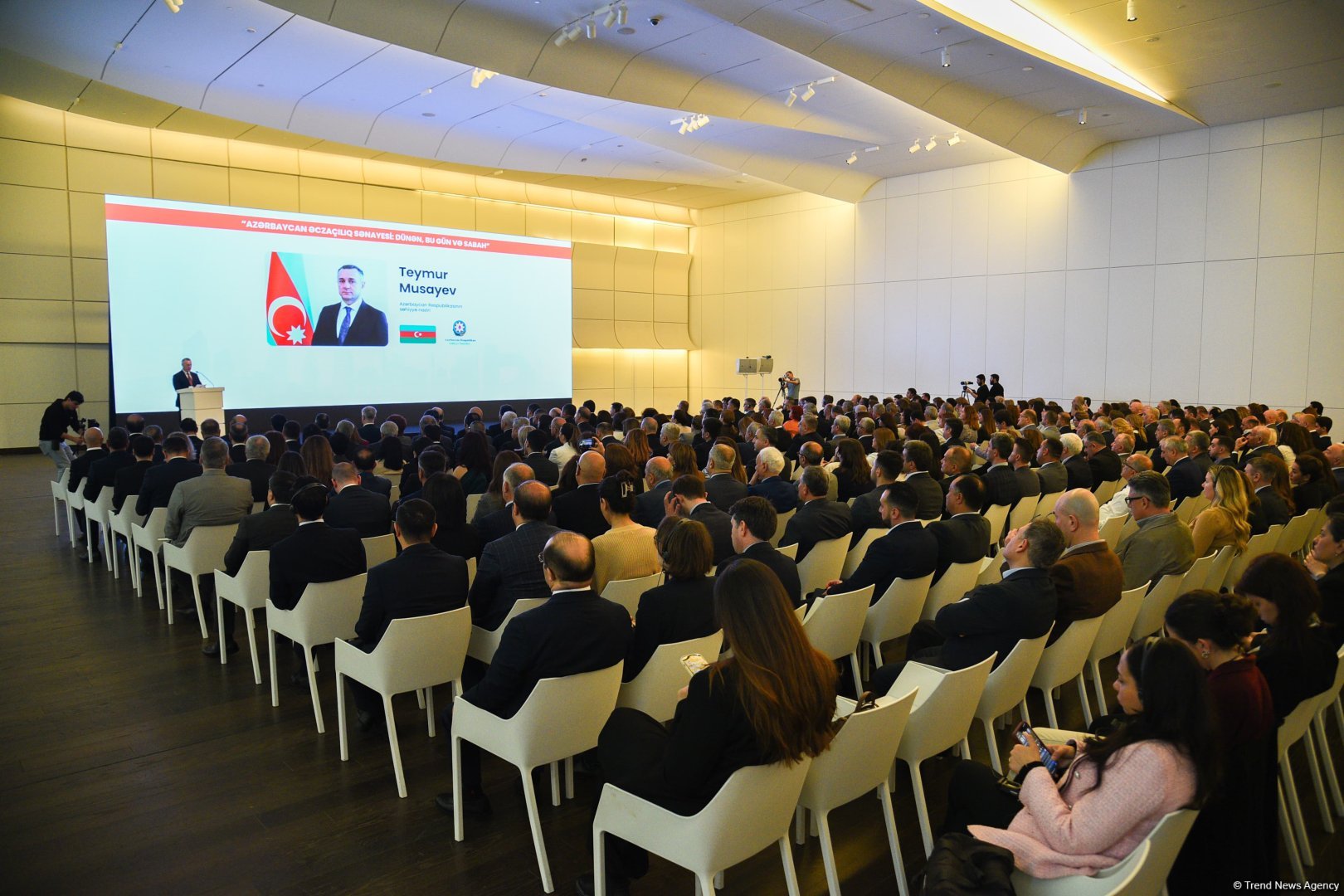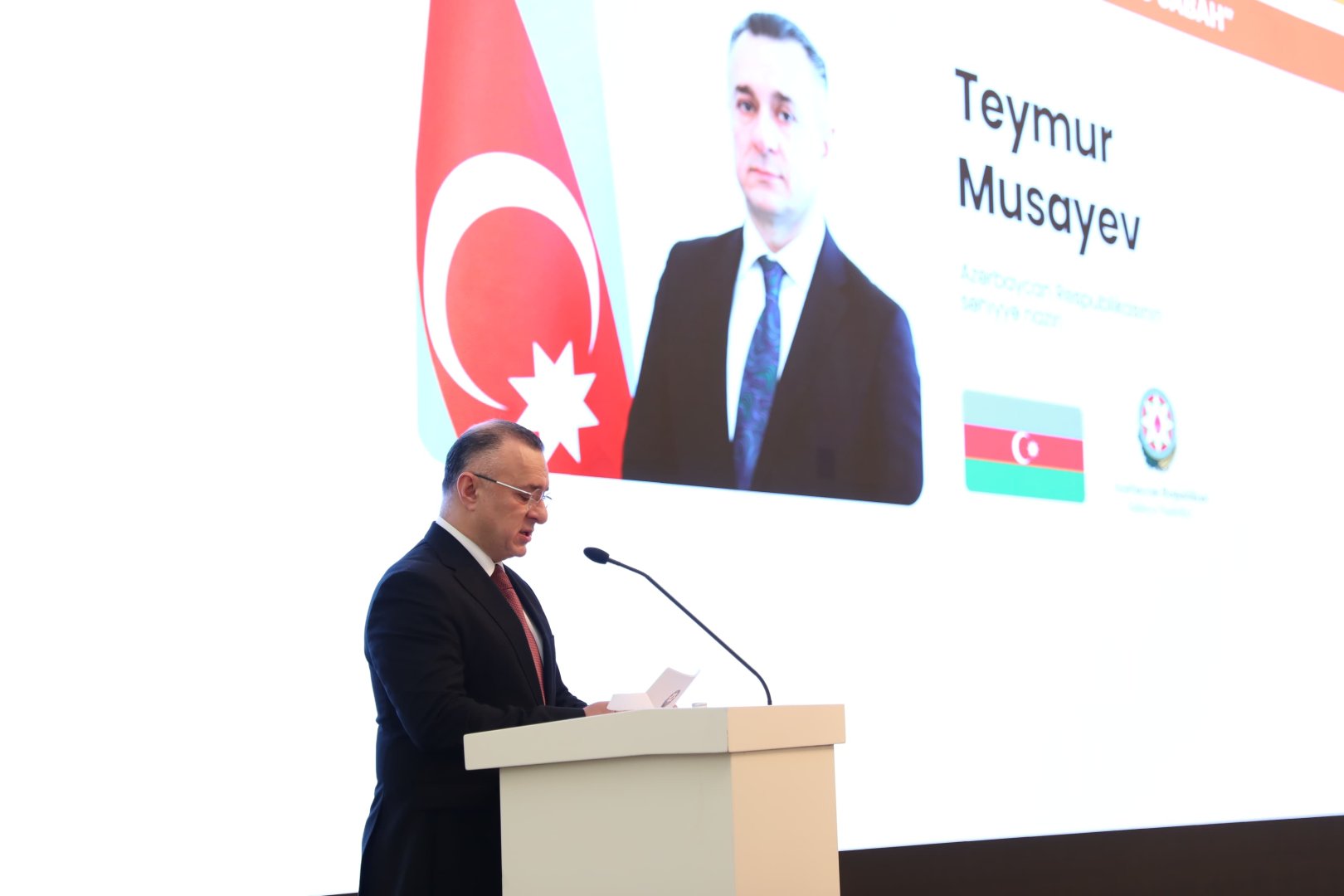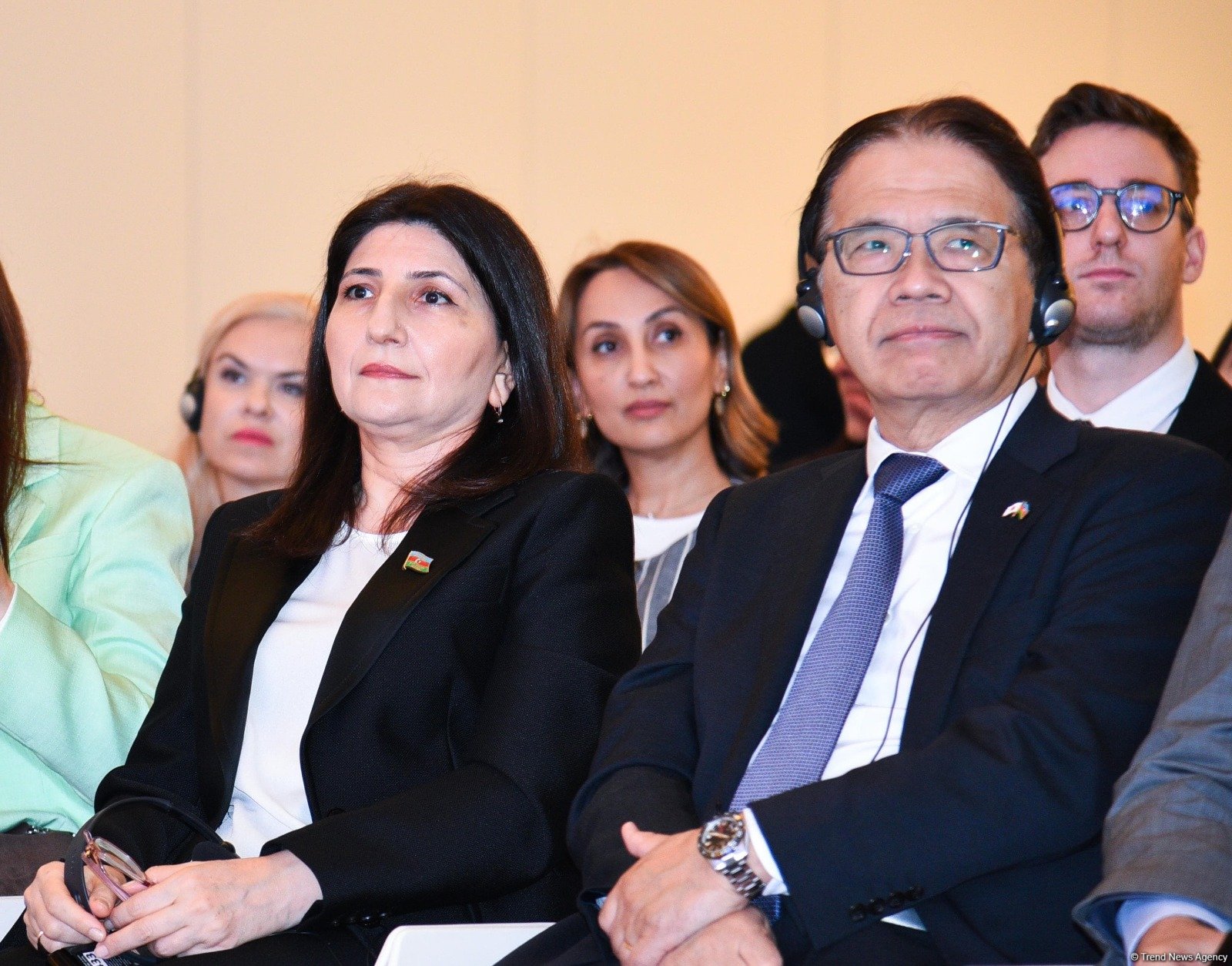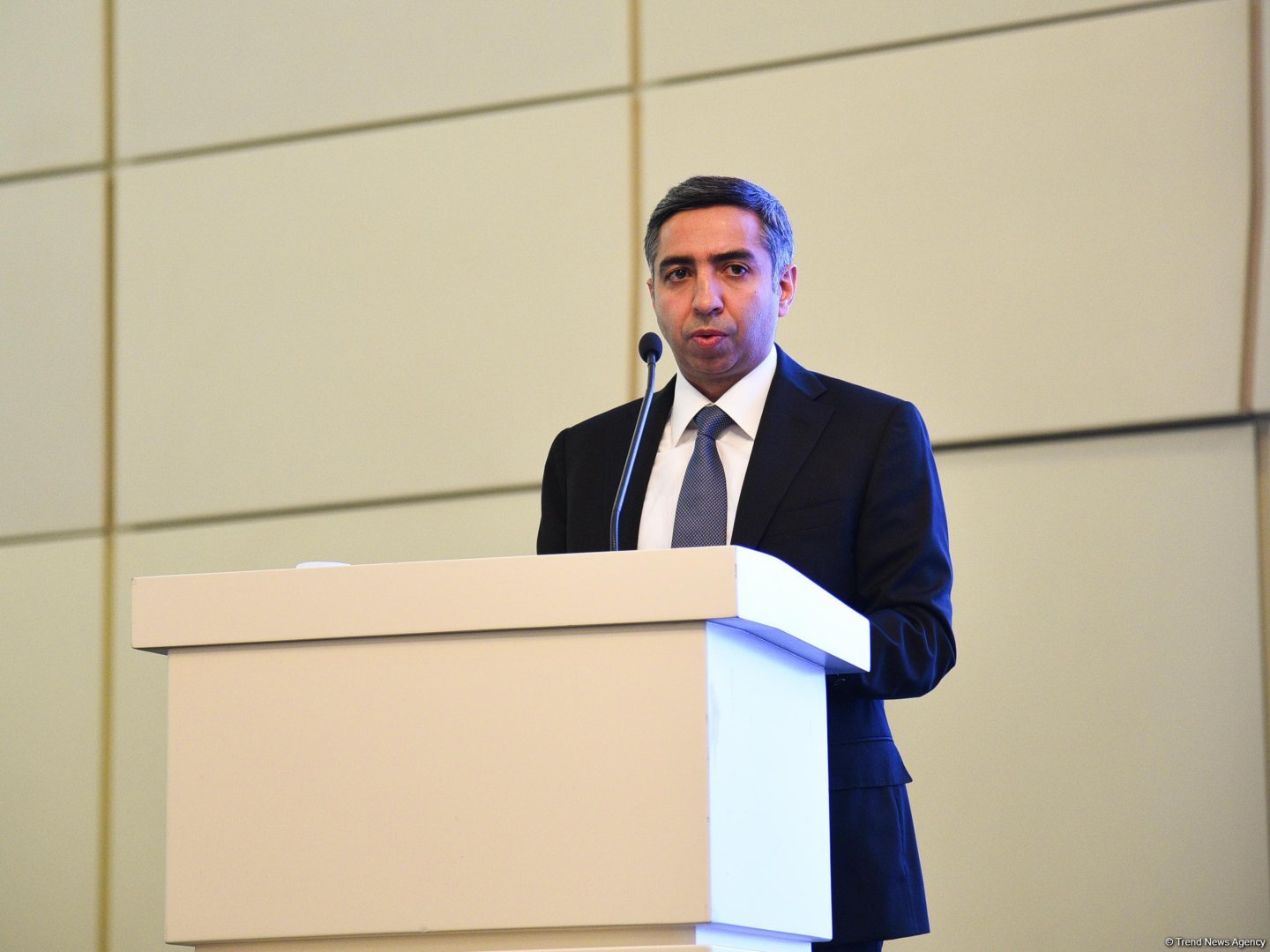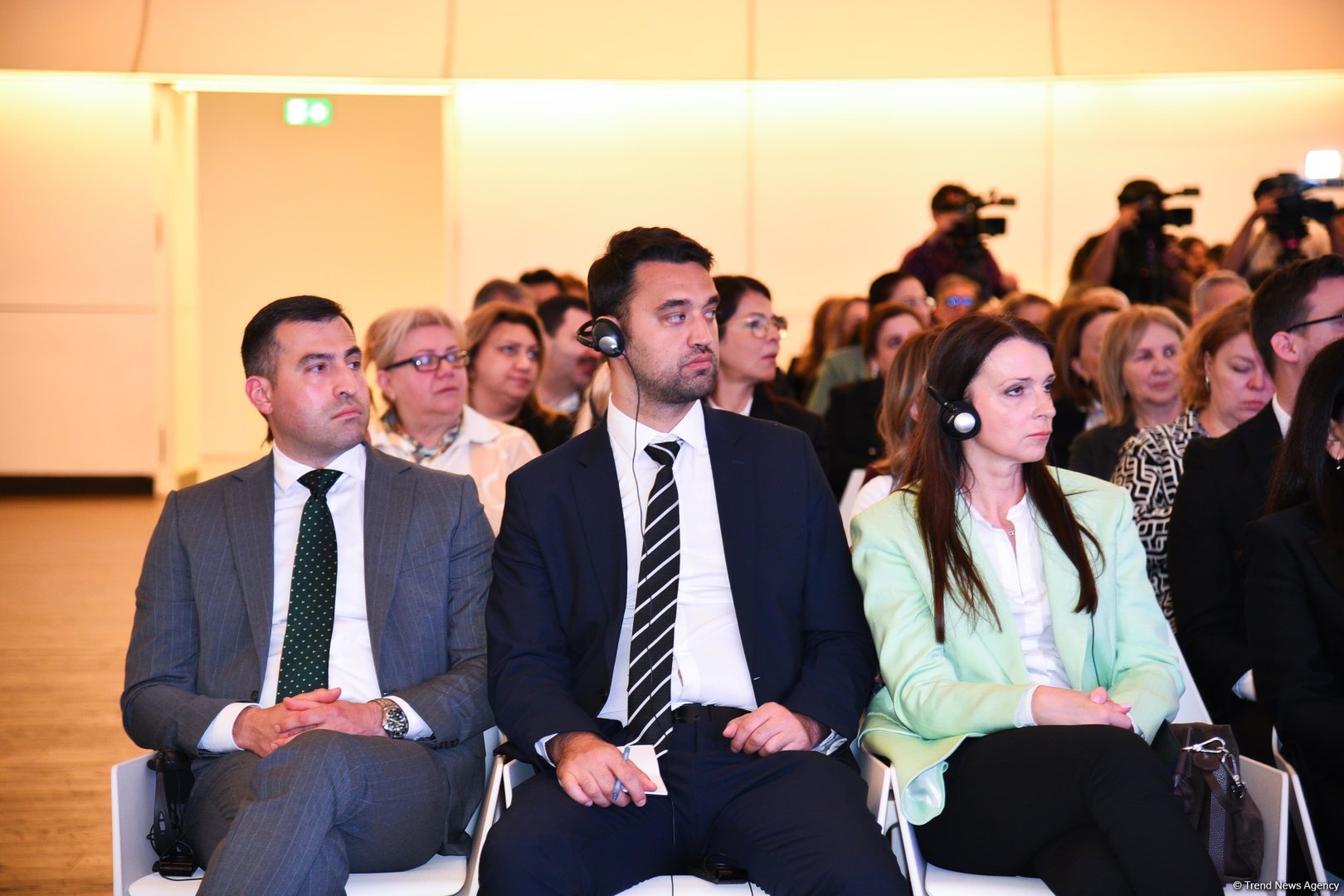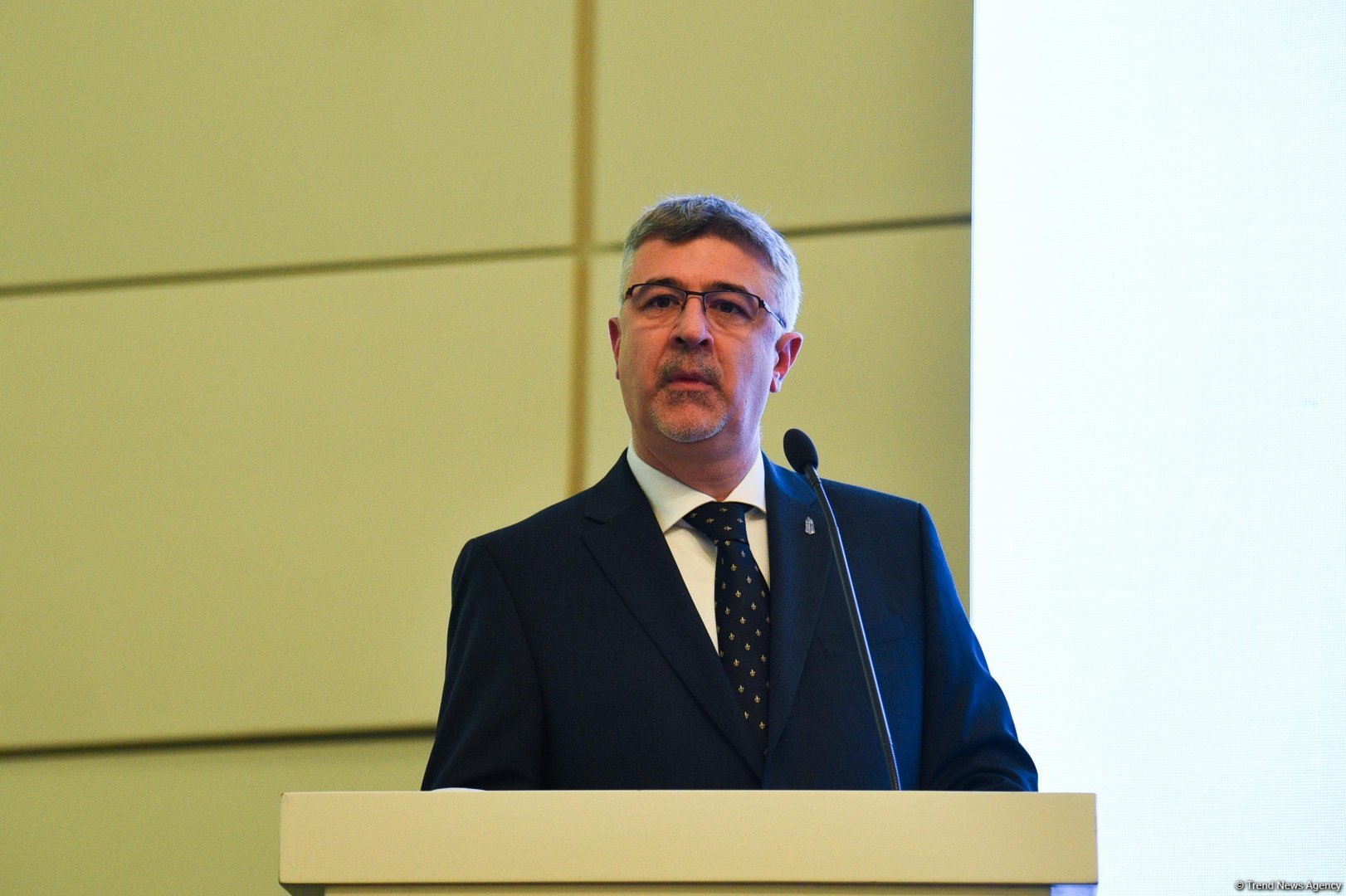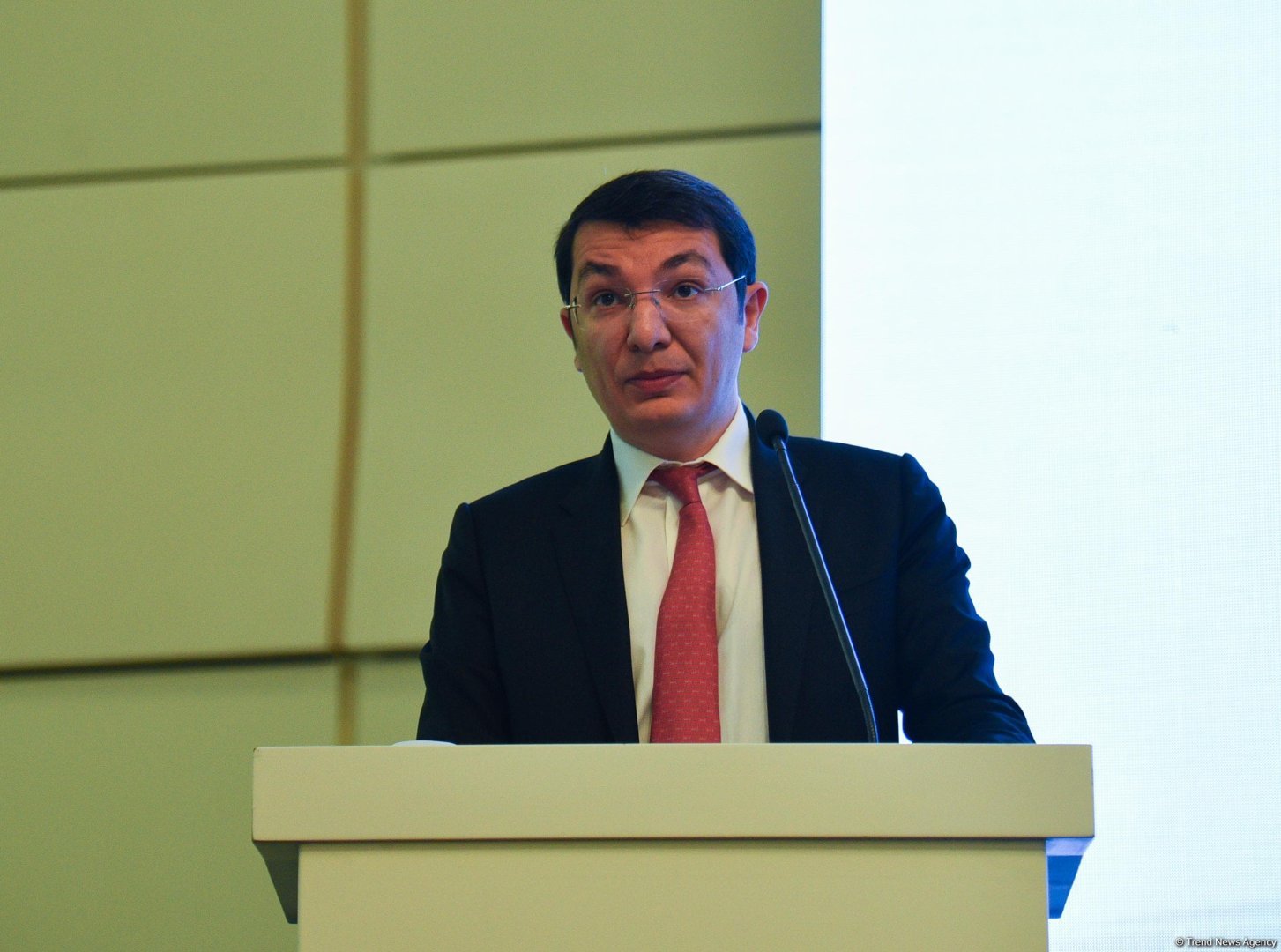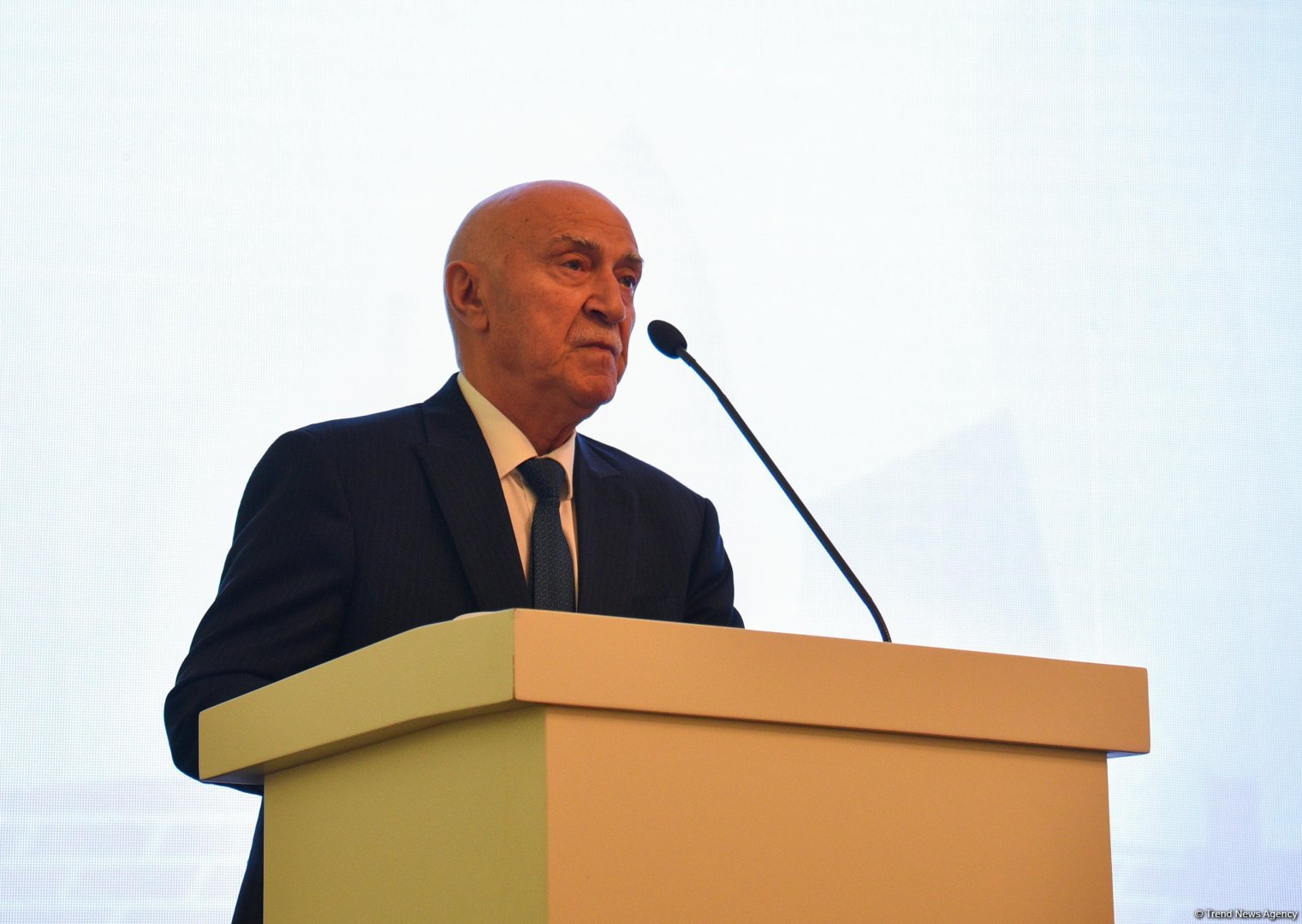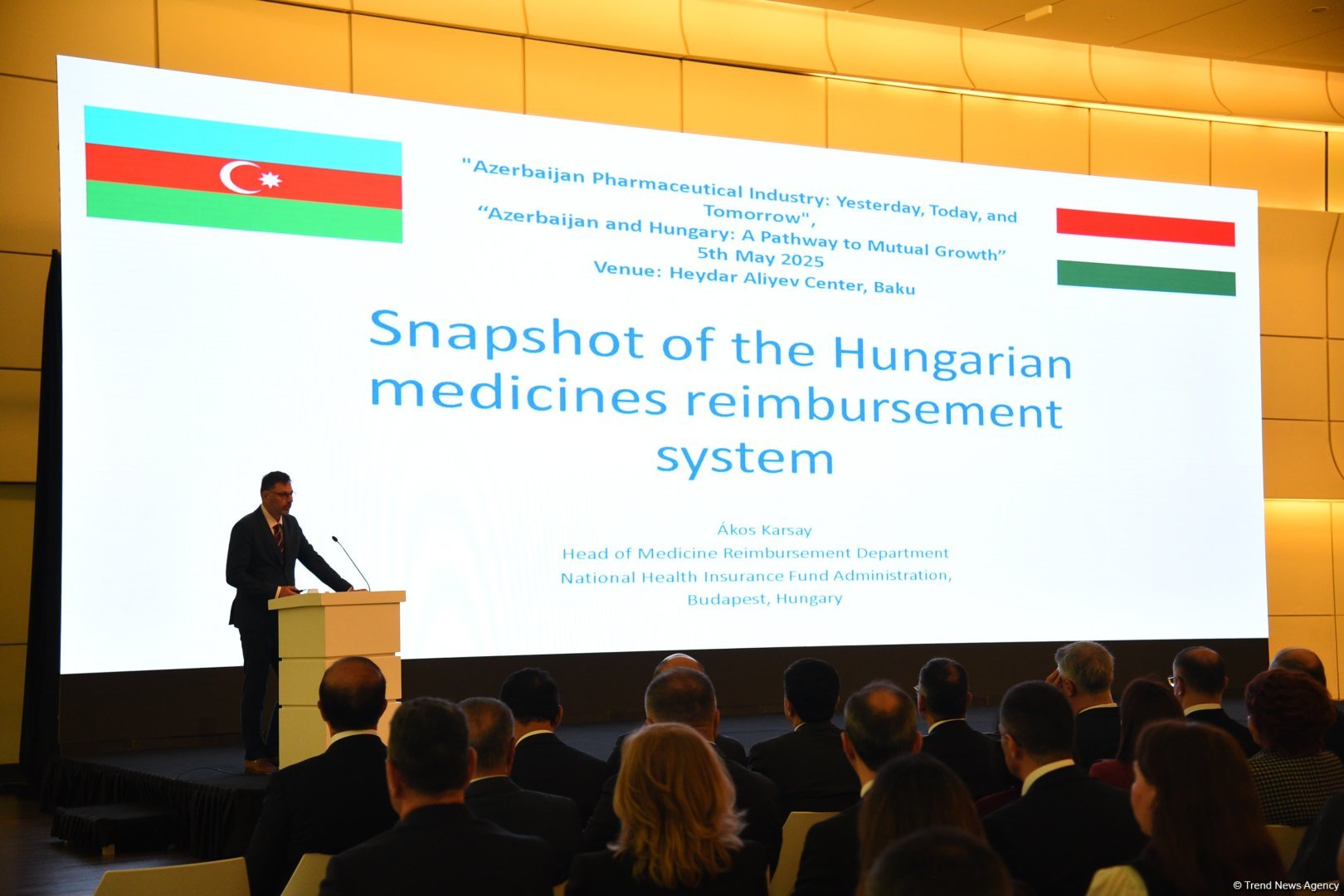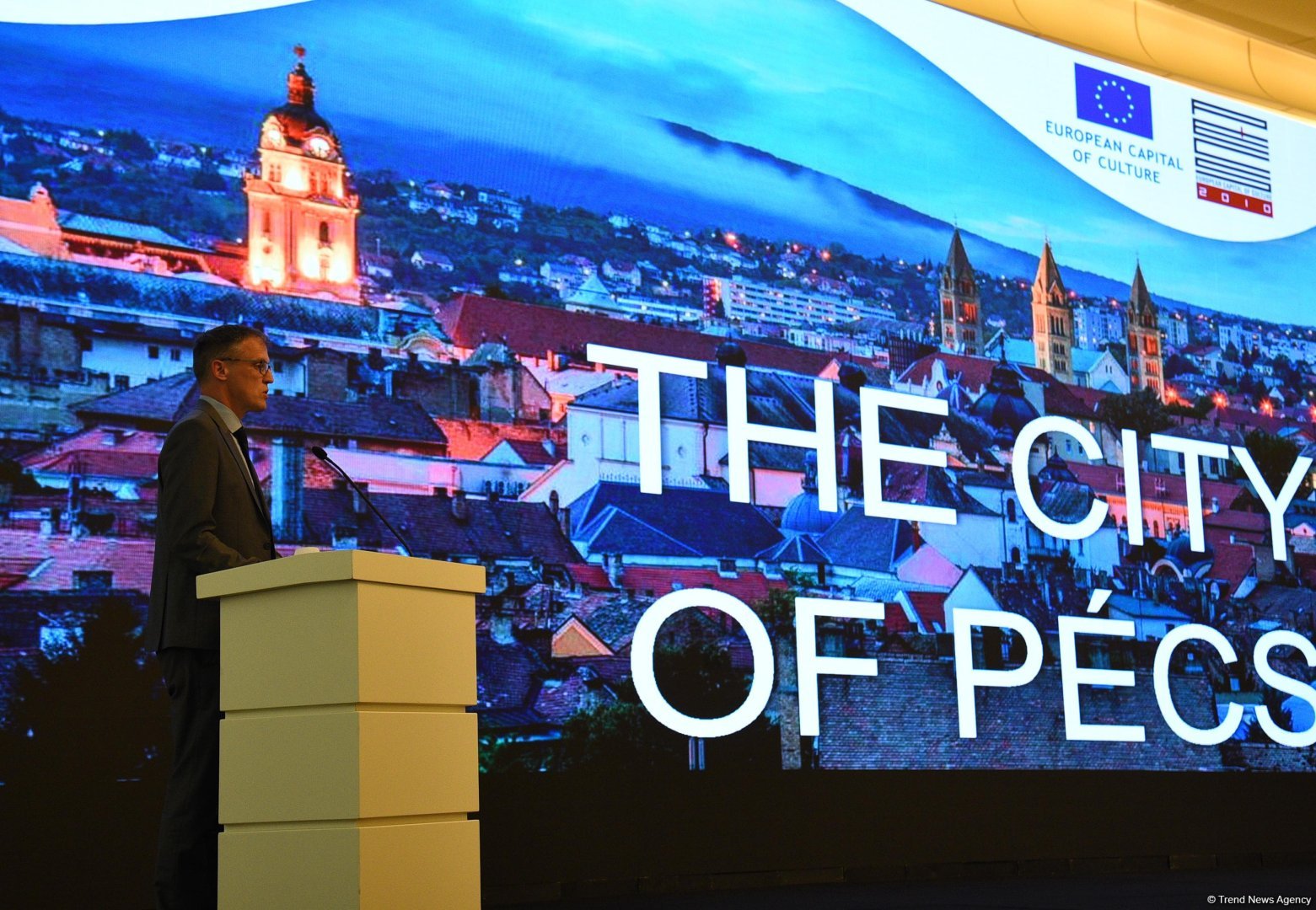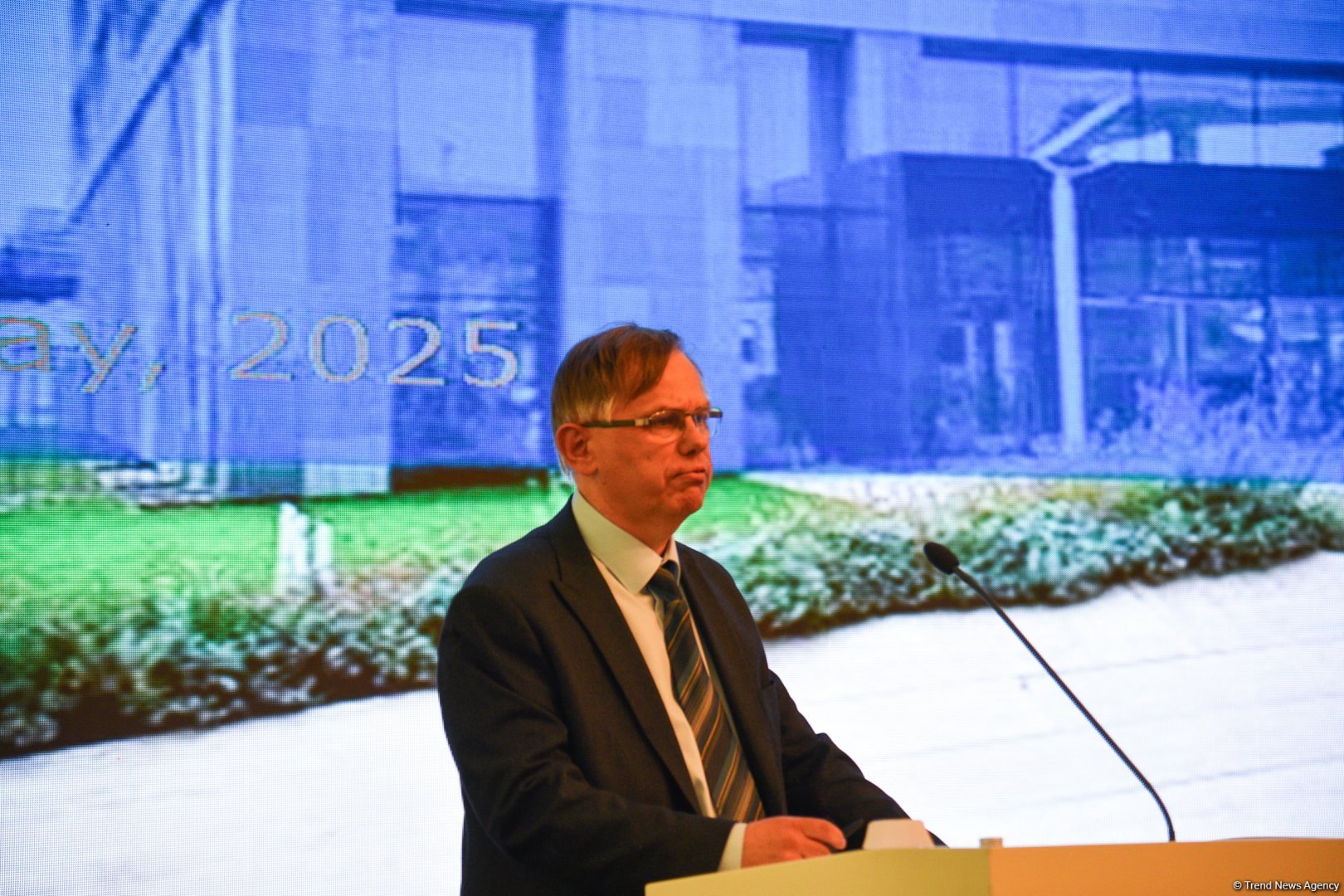BAKU, Azerbaijan, May 5. The event entitled “ Azerbaijan's Pharmaceutical Industry: Yesterday, Today, Tomorrow” was held in the Baku, Trend reports.
Held at the Heydar Aliyev Center, the event brought together senior government figures and representatives from European pharmaceutical companies.
Speaking at the event, Azerbaijani Health Minister Teymur Musayev noted that in accordance with the amendments made to the Law of the Republic of Azerbaijan on Medicines, the term of specialized expertise conducted for the purpose of state registration of medicines has been reduced to 90 calendar days.
According to him, with the addition of a new article to the law the procedure of recognition of foreign registration has been defined.
He noted that reforms of national legislation carried out in recent years, favorable business environment created, attractive investment conditions open wide opportunities for development of pharmaceutical industry.
“Pharmaceutical enterprises equipped with modern technologies and equipment are being established in special economic zones created in the territory of the Republic of Azerbaijan, and cooperation agreements are being signed with foreign partners to establish joint pharmaceutical enterprises,” the minister noted.
The Minister underlined that from 2025/2026 academic year the training of specialists at master's level on 6 new specializations will start. According to him, last year the working group established in the Ministry of Health of the Republic of Azerbaijan developed “the concept of development of pharmaceutical education”: “in accordance with the action plan of the Concept, training of specialists at the master's level on 6 new specializations will start from 2025/2026 academic year”.
In turn, Chairman of the Board of the State Agency for Compulsory Medical Insurance Zaur Aliyev said that currently the work on insurance of outpatient drug provision is carried out within the envelope of services.
He noted that the pharmaceutical industry is a key strategic partner in the development of healthcare and protection of public health.
“The main goal of compulsory health insurance is to protect the health of the population, to ensure equal and sustainable access to quality medical services. If we talk about the quality of medical care, here the key role is played not only by a doctor, a medical worker, but also by the availability, accessibility and effectiveness of the drug.
You know that following the introduction of compulsory medical insurance in all regions of the country, the availability of medical services to the population has increased, citizens' access to a choice of doctors has increased, and the rates of preventive examinations and early diagnosis have risen. Drug provision is part of this large system, and at this stage we are consistently moving in this direction. One of our top priorities from day one in this area has been to have a constant stock of medicines, especially for chronic and widespread diseases, so that the patient's treatment process is not incomplete.”
According to him, currently within the service envelope, along with a number of medical services, drugs, anesthesiology services and medical consumables used in emergency and urgent medical care, in the process of inpatient treatment, as well as medical procedures in outpatient settings are covered by compulsory health insurance:
“At the same time, work is underway to provide outpatient prescription drugs at the expense of compulsory health insurance funds. In this regard, a phased approach will be applied: at the first stage insurance coverage of medicines for diseases of the cardiovascular system is envisaged, and at the next stage - for diseases of the digestive and respiratory systems on the basis of a prescription. In parallel, a “positive list” defining the list of medicines is being developed. Work will be done to conclude contracts with pharmacies for medicines included in this list. This step is aimed not only at reducing the financial burden of citizens in the process of treatment, but also at ensuring their uninterrupted and sustainable access to medical services.”
“In conclusion, I would like to say that the development of the pharmaceutical industry is not just a technical or logistical issue for us, it is a direct guarantee of a healthy future for society. Unity, cooperation and mutual understanding are very important in every sphere of service to the citizen.
I am confident that this event will expand the opportunities for public-private cooperation in the pharmaceutical industry and pave the way for future joint initiatives. We, in our turn, as the State Agency for Compulsory Medical Insurance are always open for cooperation and joint initiatives”, Zaur Aliyev added.
Hungarian Ambassador to Azerbaijan Tamás Torma noted in his speech that today 49 percent of Hungary's exports to Azerbaijan fall precisely on the pharmaceutical sector.
“Hungary has been supplying medicines to Azerbaijan since 1993. In 1997, Gedeon Richter became the first foreign pharmaceutical company to open a representative office in Azerbaijan,” the ambassador said.
He also recalled that the Hungarian company “Egis” donated medicines to Azerbaijani soldiers during the Karabakh war in 2020.
“ Over the years, Hungarian pharmaceutical companies have gained trust and confidence in the health care system of Azerbaijan precisely with their high-quality, reliable and effective medicines,” the diplomat emphasized.
T. Torma emphasized that Hungary is the largest exporter of pharmaceutical products in central and eastern Europe and ranks 20th in the world in terms of pharmaceutical exports.
“Today, 60 percent of all R&D investments in Hungary go to the life sciences sector. Nine of the world's ten largest biotechnology companies have either a research center or a production facility, or both, in Hungary,” the ambassador noted.
First Deputy Minister of Economy Elnur Aliyev stated that
Pirallahi Industrial Park with an area of 30 hectares, specializing
in production of pharmaceutical products, was established in our
country by the order of the head of state:
“Pirallahi Industrial Park is equipped with necessary
infrastructure for entrepreneurial activity. The realization of
these projects is aimed at developing the pharmaceutical industry
and increasing local production.”
Orkhan Mammadov, Chairman of the Board of the Small and Medium Business Development Agency, noted that the pharmaceutical industry is one of the main pillars of the modern health care system. It was noted that during the years of leadership of the republic by national leader Heydar Aliyev special attention was paid to the development of health care and pharmaceutical industry, and today this sphere is covered by state support at the highest level.
In turn, Head of the Department of the National Health Insurance Fund of Hungary Akos Karsay, Dean of the Faculty of Pharmacy of Pecs University András Fittler and Commercial Director of Egis Company Csaba Pácz noted that the pharmaceutical industry is in the forefront of meeting the challenges of the time, as the demand for effective solutions in the field of health care is growing worldwide.
Extensive discussions were then held around the presentations and questions on the topic were answered.

